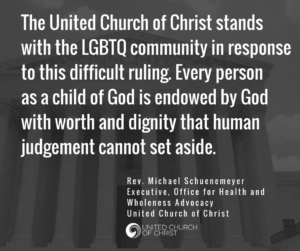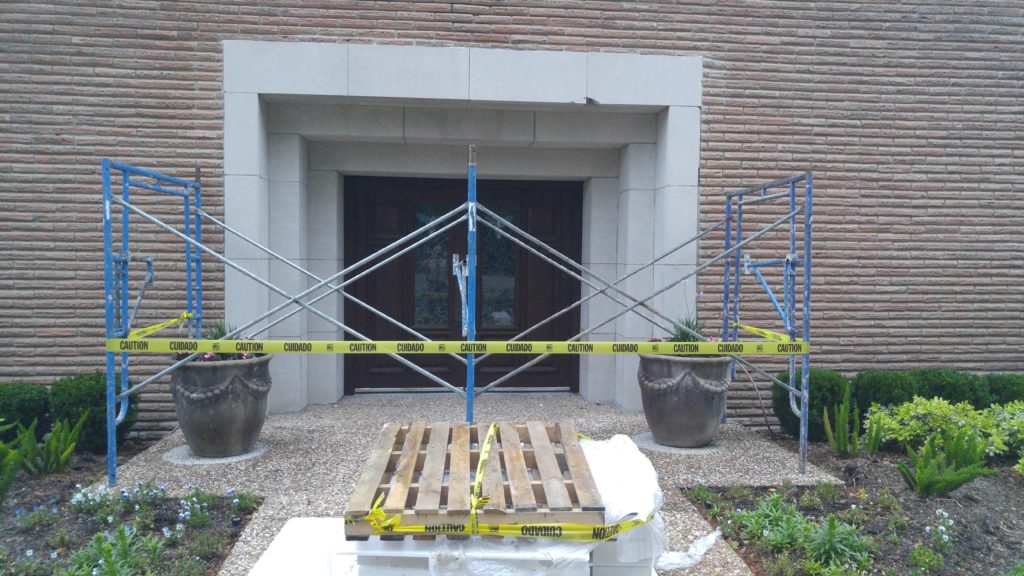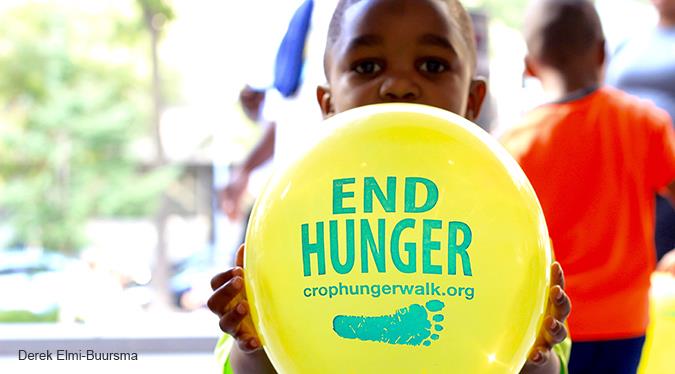142 walkers came out for the Crop Hunger Walk in order to support local food banks and Church World Service hunger relief around the world.
This article by David B. Lindsey was originally published on the UCC’s Vital Signs and Statistics blog. Rev. Daniel Haas shortened it for our specific situation at St. John’s UCC
As a pastor in the United Church of Christ, I believe that the UCC makes a real difference in the world. But what difference, exactly, is that? And how do I (or any of us) know that?
For nonprofits (including the church), one way to describe the difference that you make comes from statistics. And last month, congregations across the UCC shared some basic statistics with the wider denomination. Our churches filled out annual reports about average attendance for worship last year, how many new members we received, how many children participated in faith formation, what our income and expenses were, etc.
This exercise is common to most denominations, but its capacity to give meaningful information about the health of a church or a denomination has been questioned in recent years. Are categories like “attendance” and “income” the right things to be counting? In addition to these categories, might the wider church also want to count numbers related to mission activities (e.g. how many meals did your church serve at a local homeless shelter last year)? And is counting this stuff even the best way to assess what difference the UCC (or any denomination) makes?
Church consultant Gil Rendle offers some perspective on this debate in his recent book Doing the Math of Mission: Fruits, Faithfulness, and Metrics. In this book, Rendle advocates for a three-fold approach to assessing the health and vitality of a church. He argues that we must consider input, throughput, and output.
Input refers to the resources that the church has. This category is full of nouns: how many members do you have, how much income do you receive, what is your weekly attendance, etc. These are the kinds of things that churches can and often do count, and that frequently go into annual reports. They are also the numbers that the UCC recently asked of your local church. Rendle argues that we have to do this kind of counting. Without this information, he writes, we cannot fully assess how we’re doing.
But Rendle argues that we cannot stop there. After all, just because you have 25 people showing up for a program doesn’t inherently mean they are doing anything Christian! To contextualize input, then, Rendle suggests a second category: throughput.
Throughput refers to the activities you do with the resources you have. This category is full of verbs: how many meals we cooked, how many hours we volunteered, what new programs we created, etc. These activities can also be counted, yet congregations and denominations rarely do so. To my knowledge, the UCC has never asked its local churches to send in this information on an annual basis. Imagine what a sight it would be to see our General Minister and President going around to Conference Annual Meetings each year, joyfully celebrating the millions of volunteer hours that hundreds of thousands of UCC members gave to their congregations in any given year. And the number could be known, if churches were just asked to report such hours along with worship attendance each year!
Still, Rendle argues that we cannot stop there. After all, a group of volunteers can do an activity without it necessarily being a fruitful Christian ministry. How do we know if an activity is having any kind of vital, faithful impact in the world? According to Rendle, we need a third category to assess such vitality: output.
Output refers to the difference or change to be accomplished via input and throughput. In grammar terms, output is where you talk about purpose with phrases like “so that …” and “in order to …”. This is where, to use Rendle’s distinction, counting ends and measuring begins. Up until this point, churches can put numbers on their metrics. At this point, however, the quantitative (i.e. numerical) analysis of your church ends and the qualitative (i.e. descriptive) analysis begins.
This is the point, Rendle argues, where the church almost invariably falters. Christians of every denomination and of no particular denomination frequently do church just to do church, because “it’s what we’ve always done,” and not because there is a specific and compelling change we are pro-actively trying to make in the world. Yet to be considered a vital church, Rendle argues that we need to be able to name and claim (with vibrant, descriptive language) the difference God has called us to make in the world. And Rendle argues that any analysis of a church, a conference, or a denomination’s vitality is not truly complete until input, throughput, and output have all been assessed.
Lest this seem intimidating, let me show you how you can do this work in a single sentence. Consider the following example that you might see in a church newsletter:
“23 volunteers packed 500 meals at last Sunday’s program so that fewer children in our neighborhood will go to bed hungry this summer after the school year ends.”
In this one sentence, we see the entirety of Rendle’s approach to analyzing church vitality. We have the input (“23 people”), the throughput (“packed 500 meals at last Sunday’s program”), and the output (“so that fewer children in our neighborhood will go to bed hungry this summer after the school year ends”). Take note of just how specific the language of the output has to be in order to compete with the input and the throughput. To keep your church’s “eyes on the prize,” Rendle argues that you have to use vivid, detailed language that points clearly to a purpose. Otherwise, folks will just get hung up on the numbers (“hey, last year we only had 19 people at that event!”) instead of seeing how your congregation lives out the gospel (“whatever you did for one of the least of these children, you did for me.”)
Numbers matter, but so do stories. In order to truly see where there is vitality within the UCC, we need to look for both signs and statistics. When we do so, we are able, with God’s grace and by the power of the Holy Spirit, to accurately assess exactly what difference the UCC makes. The more fully we can articulate that difference, the more fully God can grow our denomination in both size and spirit to serve a world that is aching for transformation.
Rev. Dr. David Lindsey currently serves as the Senior Pastor of Little River United Church of Christ in Annandale, Virginia, in the Central Atlantic Conference.





 The 2018 South Central Conference Annual Meeting is coming, are you? Where has the past year gone? It seems as if the 2017 Annual Meeting in Dallas was just a few weeks ago. This year we will be meeting at Camp Allen near Navasota, TX., Friday, June 1 at 12:45pm to Saturday June 2 at 3pm, with the meeting being hosted by our Heart of Texas Association. During our first day together we will hear from our General Minister and President, John Dorhauer preach at the Conference Minister installation. We will also participate in workshops in subject areas reflecting the 5 priorities of our conference:
The 2018 South Central Conference Annual Meeting is coming, are you? Where has the past year gone? It seems as if the 2017 Annual Meeting in Dallas was just a few weeks ago. This year we will be meeting at Camp Allen near Navasota, TX., Friday, June 1 at 12:45pm to Saturday June 2 at 3pm, with the meeting being hosted by our Heart of Texas Association. During our first day together we will hear from our General Minister and President, John Dorhauer preach at the Conference Minister installation. We will also participate in workshops in subject areas reflecting the 5 priorities of our conference:


